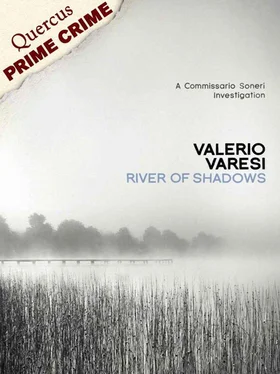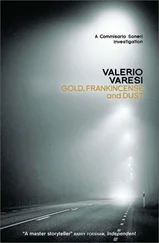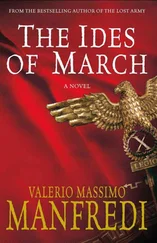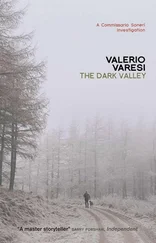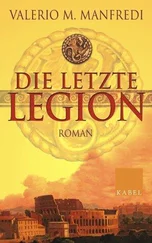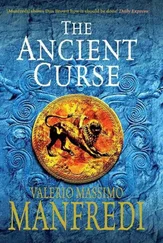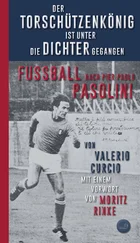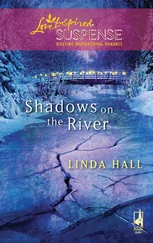Valerio Varesi - River of Shadows
Здесь есть возможность читать онлайн «Valerio Varesi - River of Shadows» весь текст электронной книги совершенно бесплатно (целиком полную версию без сокращений). В некоторых случаях можно слушать аудио, скачать через торрент в формате fb2 и присутствует краткое содержание. Жанр: Полицейский детектив, на английском языке. Описание произведения, (предисловие) а так же отзывы посетителей доступны на портале библиотеки ЛибКат.
- Название:River of Shadows
- Автор:
- Жанр:
- Год:неизвестен
- ISBN:нет данных
- Рейтинг книги:5 / 5. Голосов: 1
-
Избранное:Добавить в избранное
- Отзывы:
-
Ваша оценка:
- 100
- 1
- 2
- 3
- 4
- 5
River of Shadows: краткое содержание, описание и аннотация
Предлагаем к чтению аннотацию, описание, краткое содержание или предисловие (зависит от того, что написал сам автор книги «River of Shadows»). Если вы не нашли необходимую информацию о книге — напишите в комментариях, мы постараемся отыскать её.
River of Shadows — читать онлайн бесплатно полную книгу (весь текст) целиком
Ниже представлен текст книги, разбитый по страницам. Система сохранения места последней прочитанной страницы, позволяет с удобством читать онлайн бесплатно книгу «River of Shadows», без необходимости каждый раз заново искать на чём Вы остановились. Поставьте закладку, и сможете в любой момент перейти на страницу, на которой закончили чтение.
Интервал:
Закладка:
“No, not if he’ll bring me some spalla cotta,” the commissario said. “I’m concerned with a different kind of crime.”
“Of course,” Barigazzi said, intercepting Soneri’s thought.
He looked at them one after the other, as though issuing a challenge. “Have you any idea what could have happened?”
Vernizzi and Torelli leaned back in their chairs, raising their eyes upwards to imply they had no idea. Ghezzi kept his counsel and the commissario had the impression that he had no intention of speaking, leaving this to Barigazzi, a ritual that reminded him of meetings in the prefettura where people spoke in order of seniority.
“It’s no good asking us. You know as much as we do about how it all might have gone,” said the recognized senior.
“I haven’t formed a precise idea. I’m not a riverman.”
“Tonna would never have abandoned his barge. It was the only place he could live in peace.”
“In that case, either he had a stroke and fell into the river, or else someone bumped him off and cut the mooring. Some irresponsible idiot, even if it all turned out alright for him in the end.”
In reply, all four busied themselves with the food in front of them.
The spalla cotta was quite exceptional, pinkish with just the right level of streaky fat. Soneri made a sandwich with the bread and as the music grew louder and louder, some people at the tables behind joined in with an improvised version of “Rigoletto or The Duke of Mantua”.
The commissario knew when to bide his time. The main thing was to allow thoughts to mature, give them time to take form and organize themselves into speech. The wine played its part. When he had finished chewing, Barigazzi took up the subject.
“Look, Commissario, there’s one thing I don’t get about the last voyage of the barge. Do you believe it’s possible for a forty-metre vessel to pass under four bridges without smashing into the columns, with no-one at the helm and, to crown it all, with the engine switched off?”
Soneri’s expression told them that he had no idea.
“Four, uh!” the old man repeated, raising his hand and holding up the same number of bent fingers with the thick, broken nails typical of a man who had laboured on the docks. “Three road bridges and one railway bridge: Viadana, Boretto and Guastalla.”
“So, then, there was someone on the barge. But if it was Tonna, what happened to him?”
“You’re the investigator,” Ghezzi said.
“We’ve just agreed that Tonna would not have abandoned his barge. He might have fallen into the river if something or someone struck him, and then the current might have carried the boat downstream. So perhaps it sneaked under the bridges by itself by pure chance.”
“There is one way of finding out if that’s what happened…” Barigazzi was sitting sideways on the seat, his arm against the back of the chair in a theatrical pose which seemed in keeping with the music.
Soneri, respecting the pause, raised his bowl to his lips and drank a deep draft of the Fortanina. It was like a young wine, halfway between a fresh must and the heavy, black Lambrusco from the lands around the Po.
“You’d have to find out if he’s still on the dinghy.”
“The dinghy?”
“Something like that,” Barigazzi said. “It’s something you need when you have to get ashore and the mooring is out of reach. Maybe because of a sandbank or shallows.”
The dinghy. Soneri looked at his watch with the idea of contacting the carabinieri in Luzzara, but then he thought it might be more fruitful to go there in person and perhaps even get on board. Meantime, the music had changed. “Aida” echoed off the walls of the osteria, tripping along the beams of the ceiling and bouncing back into the ears of the listeners. The wall facing the commissario was bare brick, the plain, red brick prevalent in the lower Po valley, while the other walls were partially covered with plaster. In a low corner, near the bar, there was a gauge with a series of notches indicating the dates of various floods. The highest was ’51.
“An insult, so much water in a drinking den like this,” Soneri said to Barigazzi.
“We put up with it occasionally, but give it half a chance and it’d be all over us.”
“We’ve taken more water in through our ears swimming in the Po than through our mouths drinking the stuff,” Vernizzi said. “Like the owner of this place, who can’t hear a thing now.”
“There’s some people I could mention that have taken in water through the holes in their arses,” Ghezzi sniggered.
The commissario smiled while his eyes continued to run over the walls where various Falstaffs and Othellos stood out against a background of heavy clay streaked with white lime, the colours of a good Felino salame. His eyes fell on a life-size, medium-quality fresco of a Christ executed by some mad artist. The face seemed to express not so much pain as the anger of a man cursing and swearing, while his sturdy, oarsman’s arms seemed capable of tearing the nails from the cross. When the commissario looked lower, he saw that the artist had painted the legs folded over, crossed slightly beneath the pelvis.
“You’ve noticed it too,” Barigazzi said sarcastically. “Jesus Christ did not die of cold feet.”
Guffaws rang out around the table and created ripples in the Fortanina in the bowls.
“It wasn’t always like that,” he said, turning more serious. “It happened in ’51, with the flood.”
The commissario looked around all the tables. The chances were that not one of them was a church-goer.
“You don’t hold back with your jokes,” he said.
“It’s not a joke,” Torelli protested. “Even the priest agrees, and he made the old women believe it was a miracle.”
“The thing is he might be right.”
Soneri shook his head to say it was time to stop. He felt himself trapped in the middle. He had come to pose questions, and now he found himself in a bizarre situation. The wine was inducing a mood of euphoria in him, while the talk spun round him like a gauze bandage immobilizing him layer by layer.
“I don’t believe in miracles,” Barigazzi said, turning serious. “But nobody can say who redid Christ’s legs, not even the bar owner himself. He found them like that when he got back to his osteria after the flood water receded. They say it was some street artist who did the painting standing up to his knees in water.”
Soneri looked back at the Christ. He looked like an Indian holy man, but there was nothing blasphemous or mocking about him. “It’s strange to see an image like that here, where no-one goes to church,” he almost said.
“We don’t go to church and we can’t stand priests, but he,” Barigazzi said, pointing at the painting with deep respect, “he was a man who underwent suffering, like us.”
“He taught us not to kill,” Soneri said.
The three, suddenly suspicious, looked up for a moment and stared at him: “You don’t really think that we…”
“No, I don’t. But they did kill Tonna’s brother.”
“Decimo?”
“Yes.”
The conversation halted and even the music paused. The din of the osteria took over. None of the four asked any questions. Their mood was now serious and only Vernizzi murmured, “That’s certainly strange,” and he seemed to be speaking for the others.
There was a silence for a few minutes, which Soneri passed listening to the somewhat acerbic Verdi of “I Lombardi alla prima Crociata” before Barigazzi found the courage to venture: “So in your view, Anteo too was…”
The commissario first stretched out his arms then moved his face closer to Barigazzi’s square, high-cheekboned face. He was not wearing a beret, and this showed off his still thick but whitening hair. “I’m not sure, but as we set aside other hypotheses, I’m almost beginning to grow convinced.”
Читать дальшеИнтервал:
Закладка:
Похожие книги на «River of Shadows»
Представляем Вашему вниманию похожие книги на «River of Shadows» списком для выбора. Мы отобрали схожую по названию и смыслу литературу в надежде предоставить читателям больше вариантов отыскать новые, интересные, ещё непрочитанные произведения.
Обсуждение, отзывы о книге «River of Shadows» и просто собственные мнения читателей. Оставьте ваши комментарии, напишите, что Вы думаете о произведении, его смысле или главных героях. Укажите что конкретно понравилось, а что нет, и почему Вы так считаете.
